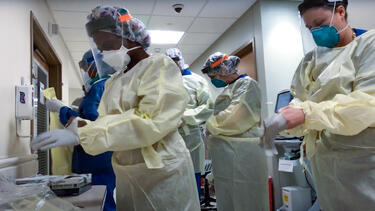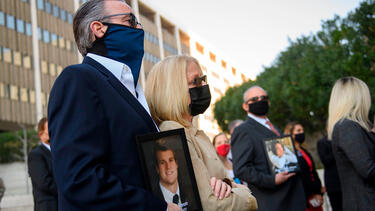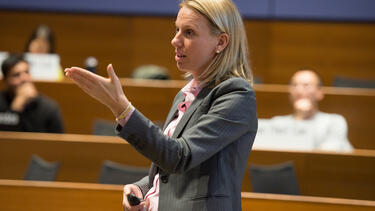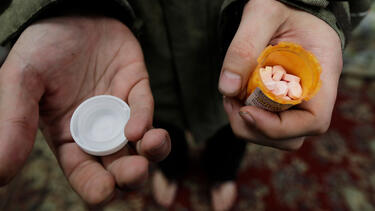Marissa D. King
Video: Identifying with a Team Helps Prevent Stress and Burnout among Healthcare Workers
A Yale study conducted in the early days of the COVID-19 pandemic found that feeling like part of a team reduced reported stress and burnout—an insight with implications for how any kind of organization can weather a crisis.

How Finding a Mentor—or Even Better, a Sponsor—Can Accelerate Your Career
In an excerpt from her book Social Chemistry: Decoding the Patterns of Human Connection, Prof. Marissa King explains how a more experienced colleague can help propel your career.

How COVID Has Worsened the Opioid Epidemic
There is another epidemic we cannot lose sight of: the opioid epidemic, which has become only more acute in the United States and elsewhere amidst the disruptions and stress caused by COVID-19.

Mapping Our Social Worlds
Prof. Marissa King’s interdisciplinary approach to network science has produced new insights into how people interact and ideas spread. Her new book, Social Chemistry, explains how an understanding of social networks can help solve issues faced every day by individuals, organizations, and societies.

For Holiday Cheer, Switch Off Zoom and Pick Up the Phone
After an extraordinarily difficult year, we are all looking for respite from the isolation and uncertainty of pandemic life. We asked Marissa King, who studies personal and team dynamics, to share some quick tips for making this year’s holiday season a little brighter.

Buprenorphine Can Transform Treatment of Opioid Addiction, But It Isn’t Reaching Enough Patients
According to a new study co-authored by Yale SOM’s Marissa King, most patients aren’t staying on the drug long enough to get its benefit, and it isn’t reaching young people.

Three Questions: Prof. Marissa King on the Cost of Loneliness
There is increasing evidence that isolation has a powerful negative effect on health and productivity. We asked Yale SOM’s Marissa King, an expert on social networks, how we can reinforce the connections that help sustain us.

Can Better Teamwork Save Lives?
By gathering and analyzing real-time data about how team members interact, researchers investigated whether a care coordinator can improve outcomes—and in the process, learned just how delicate team dynamics can be.
Do We Need to Think Big about Health and Well-Being?
In an online conversation, Dr. Vivek H. Murthy ’03, the 19th surgeon general of the United States, discussed improving public health by addressing its lifestyle, environmental, and societal components.

Three Questions: Prof. Marissa King on How the Opioid Epidemic Spreads
We asked Yale SOM’s Marissa King, an expert in social networks who has studied the spread of drug addiction, what is driving the opioid crisis and how it can be addressed.
